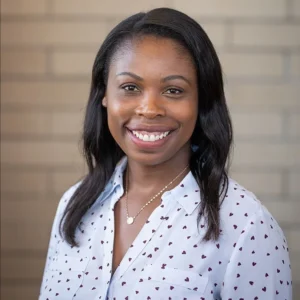Korbel ranked 12th best place in the world to earn a master’s degree in international relations.
Korbel ranked 20th in the United States for the best undergraduate degree in international studies.
Korbel ranked 12th best place in the world to earn a master’s degree in international relations.
Korbel ranked 20th in the United States for the best undergraduate degree in international studies.
Introducing Africa Center Director - Abigail Kabandula

How do you see your work fitting into a Korbel Institute for Comparative and Regional Studies (ICRS) with a focus on labor, democracy, and the global South?
I often tell my students if they would like to specialize in any aspect of global politics to study Africa. Today Africa sits at the center of international power plays be it in security, development, climate change, or technological advancement. It promises to be economically and geopolitically important with a projected population of 2.5 billion people by 2050 and 3.1 in 2063, the largest free trade area with combined GDP of USD 3.4 trillion following the creation of the Continental Free Trade Area, and because of a significant concentration of minerals for global decarbonization efforts. Like most global south countries, Africa is not short of labor even though 90 percent of it is in the informal sector hence it is imperative for the Africa Center programming to emphasize labor. Suffice to say, Africa is germane in global politics and will remain so. Emerging powers China, Gulf States, Turkey, and now Russia are cognizant of the importance of Africa and have begun to position themselves to benefit by increasing their footprint through improved diplomatic relations, foreign direct investment, foreign aid, infrastructure development, and technology. The United States seems to have come to this realization albeit in efforts to counter China’s presence on the continent and has renewed its commitment at the second US-Africa Leaders’ Summit. It’s within this global configuration vis-à-vis Africa that my research unfolds. I focus on global governance and human security in the global south, particularly the drivers of conflict and fragility; terrorism, and prevention of violent extremism/countering violent extremism; multilateral responses to crises and regional organizations for peace and security and; emerging powers, relational power, and geopolitics.
How does your positionality shape your work as director of the Africa Center?
My positionality as a person of color, African, scholar, and woman originally from Zambia informs my analysis and engagement with global issues. As a Zambian woman, I learned quickly of the marginalization of Africans, the global south more broadly, and gendered identities in my work. I have been fortunate to participate in many policy advisory meetings, policy research, and to travel extensively across the world, in each of these spaces, I am conscious of who is missing at the table and why? I am also conscious of when and how I can highlight those voices and needs. Our programs and activities at the Africa Center aim to enhance the science-policy interface as well as integrate the voices of the community that we serve while highlighting marginalized voices; diaspora or continental.
What advice would you have to students, activists, and policymakers in terms of building solidarity between North and South?
One thing that has helped me when interacting with people from diverse backgrounds is having an open mind and thoughtfully listening as well as appreciating the context informing one’s standpoint before engaging in a discussion. Meaningful collaboration between the global south and north can truly happen in the context of openness and willingness to listen and learn new ways of thinking about issues. Particularly the global north ought to appreciate that the global south has something to contribute, their knowledge and experiences are valid and significant. On the part of the global south, empathy and tolerance are key knowing that “A sweet potato cannot be easily straightened” as the Bemba saying goes. It takes a lot to change the negative image and characterization of the global south in the Western mindset. However, with time and continued meaningful interactions, these perceptions shift fostering mutual respect and positive collaboration.
Copyright ©2025 University of Denver | All rights reserved | The University of Denver is an equal opportunity institution